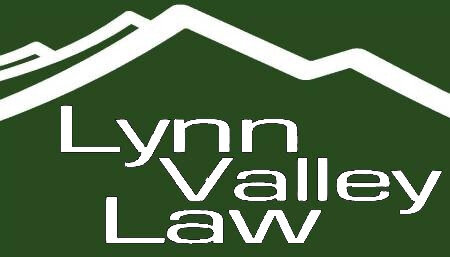Best Marine Insurance Lawyers in Canada
Share your needs with us, get contacted by law firms.
Free. Takes 2 min.
Or refine your search by selecting a city:
List of the best lawyers in Canada
About Marine Insurance Law in Canada
Marine insurance in Canada provides coverage for losses or damages related to ships, cargo, and related interests along water routes. It is a specialized branch of insurance that deals with areas such as hull insurance, cargo insurance, and liability insurance, among others. The industry is governed by both federal and provincial laws, offering a comprehensive framework to address the diverse risks associated with maritime activities, including damages due to weather, piracy, and accidents at sea. Canada's marine insurance framework supports the shipping industry's growth and security by addressing complex logistical and legal challenges inherent in maritime operations.
Why You May Need a Lawyer
Legal expertise in marine insurance might be necessary in several circumstances. For instance, individuals or businesses facing disputes over claims related to damage or loss of cargo would benefit from consulting a legal expert. Legal advice may also be crucial when interpreting complex policy documents or negotiating terms that are favorable. Furthermore, if you're involved in litigation due to alleged negligence or liability issues arising from a maritime incident, having a lawyer experienced in marine insurance law could be invaluable in navigating the often intricate legal processes involved.
Local Laws Overview
Canadian marine insurance law operates under several key legislative texts and governing bodies. The Marine Insurance Act is a primary legal document outlining the principles, terms, and conditions applicable to marine insurance contracts. Additionally, interpretations under the Canada Shipping Act and various provincial regulations further refine insurance obligations and liabilities. International conventions, such as the Hague-Visby Rules, also play a role in shaping policies related to shipping and cargo. Understanding how local laws intersect with international guidelines is essential for those involved in marine commerce and insurance.
Frequently Asked Questions
What is covered under a typical marine insurance policy?
A typical marine insurance policy covers physical damage to or loss of ships and their cargo, liabilities arising from navigation errors, piracy, and other maritime-related risks.
What is the difference between hull and cargo insurance?
Hull insurance covers physical damages to the ship itself, whereas cargo insurance provides coverage against damages or losses of the goods being transported.
Are there mandatory insurance requirements for vessels operating in Canadian waters?
While not all maritime insurance is mandatory, specific coverage such as oil pollution liability insurance is required for certain vessels under Canadian law.
How are marine insurance claims typically processed?
Claims are processed by assessing the event causing damage or loss, reviewing the policy coverage, and determining the amount payable, which is usually negotiated between the insurer and the insured or through arbitration.
Can policy terms be negotiated or customized?
Yes, marine insurance terms can often be negotiated to better suit the risk profile and needs of the insured, although standard clauses are commonly used as a starting point.
What is a protection and indemnity club, and how does it relate to marine insurance?
Protection and Indemnity (P&I) clubs are mutual insurance associations that provide liability coverage for ship owners, addressing risks not typically covered by standard marine insurance.
Is marine insurance different for international waters compared to Canadian waters?
While core principles remain consistent, specific regulatory requirements and liabilities may differ depending on whether operations are in Canadian or international waters.
What should be done in the event of a marine incident requiring an insurance claim?
Immediately report the incident to the insurance provider, document all details and evidence related to the claim, and ensure compliance with reporting requirements.
Does marine insurance cover environmental damages?
Some marine insurance policies cover environmental damages, such as oil spills, but may require additional coverage or be subject to specific exclusions.
Are there differences in coverage for commercial and recreational vessels?
Yes, commercial vessel insurance often includes broader risk coverage and higher liability limits compared to recreational vessel policies, which reflect different operational risks.
Additional Resources
Those seeking further information about marine insurance in Canada can consult the following resources:
- The Canadian Board of Marine Underwriters (CBMU) offers industry insights and resources.
- Transport Canada provides regulatory information regarding vessel operations and insurance.
- The International Maritime Organization (IMO) offers guidance on international standards affecting Canadian maritime law.
Next Steps
If you need legal assistance in marine insurance, start by consulting with a lawyer who specializes in maritime law. Look for professionals with experience in marine accidents and insurance claims. Contact provincial law societies for referrals or use online directories to find qualified legal experts. Gathering all relevant documentation and evidence related to your case will also facilitate a more effective consultation with your lawyer.
Lawzana helps you find the best lawyers and law firms in Canada through a curated and pre-screened list of qualified legal professionals. Our platform offers rankings and detailed profiles of attorneys and law firms, allowing you to compare based on practice areas, including Marine Insurance, experience, and client feedback.
Each profile includes a description of the firm's areas of practice, client reviews, team members and partners, year of establishment, spoken languages, office locations, contact information, social media presence, and any published articles or resources. Most firms on our platform speak English and are experienced in both local and international legal matters.
Get a quote from top-rated law firms in Canada — quickly, securely, and without unnecessary hassle.
Disclaimer:
The information provided on this page is for general informational purposes only and does not constitute legal advice. While we strive to ensure the accuracy and relevance of the content, legal information may change over time, and interpretations of the law can vary. You should always consult with a qualified legal professional for advice specific to your situation.
We disclaim all liability for actions taken or not taken based on the content of this page. If you believe any information is incorrect or outdated, please contact us, and we will review and update it where appropriate.
Browse marine insurance law firms by city in Canada
Refine your search by selecting a city.















